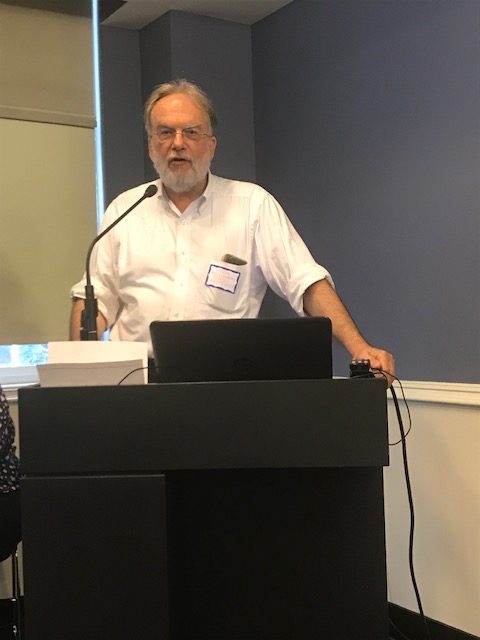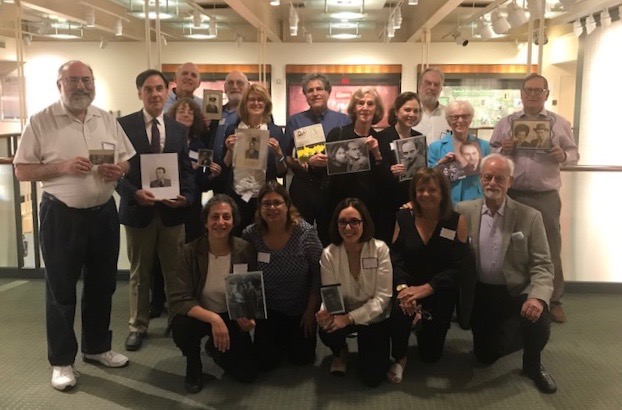Last night, the evening of May 22, 12 family groups, descendants of 13 Kitchener men, gathered at the Leo Baeck Institute in New York – the first gathering of Kitchener descendants in the US. I think I speak for the entire group when I say the gathering was a joy.
Family members traveled from as far away as San Francisco, North Carolina, Baltimore, and Massachusetts for the gathering. We had two sets of cousins among our Kitchener men and the gathering prompted at least one mini family reunion.
We shared the stories of our Kitchener men and the women in their lives – some of whom were saved because of Kitchener, others who facilitated their husband’s rescue through Kitchener but made it out by other means. Three family members were born in Europe, and Kitchener was one piece of their own emigration story. Many of us viewed the Kindertransport exhibit at Leo Baeck before the meeting. One Kitchener descendant’s mother had been on the Kindertransport and had met his father after both immigrated to New York.
Dr Clare Weissenberg recently posted that she has found the names of 600 Kitchener men who emigrated to the US in 1940. Our small group represented 10 of those men. Three of the men departed England on May 22, 1940, exactly 79 years ago. Two of the men sailed on the same ship, one with his wife and two daughters – both of whom attended our gathering.
Our Kitchener men were representative of the types of men admitted to Kitchener. Six were German and seven Austrian. They included one of the youngest men, age 16, and one of the oldest, age 40. Three had been in concentrations camps prior to coming to Kitchener. Some were professionals, including a doctor and a lawyer turned businessman when he could no longer practice law. There were three students, a clerk, a tailor, a furrier, a house painter and a gardener who became a farmer at Kitchener.
After Kitchener closed, two of the men were interned, one in Canada and one on the Isle of Man. One joined the Pioneer Corp of the British military. Three served in the US military in WWII.
We shared our personal journeys. Some had heard stories of Kitchener directly from their Kitchener relative while others had not. Several had found diaries, pictures, or troves of documents after their Kitchener relative had died. Some shared love letters written by Kitchener men to the wives they were missing. Others shared photos and letters between Kitchener men and Sandwich residents who welcomed them with caring and kindness. One showed pictures of he and his wife’s visit to Sandwich where they were welcomed and guided by the two Clares who have been so central to the Kitchener descendants project.
Thanks to Ronnie Wolf for taking the lead in organizing this gathering and to Frank Mecklenburg, Chief Archivist at Leo Baeck for securing the space and making the evening possible. Frank addressed the group at the beginning of our gathering and I am sure many of us will be in touch as we further our research and try to decide what to do with the precious photos and documents we have inherited. Thanks to Henry Frisch for organizing the fabulous food and to Sally Carroll, Frank’s assistant, who helped make the sharing of our images seamless.

And a special thanks to the two Clares in England – Clare Ungerson for bringing this history to light and Dr Clare Weissenberg for creating the website and spearheading the descendants group that brought us together.
Ann Rolett – 22 May 2019


